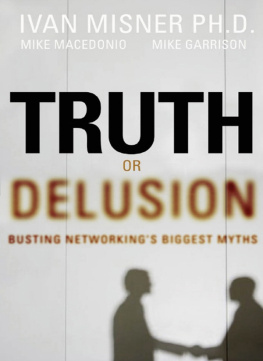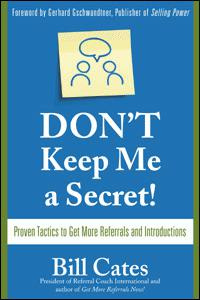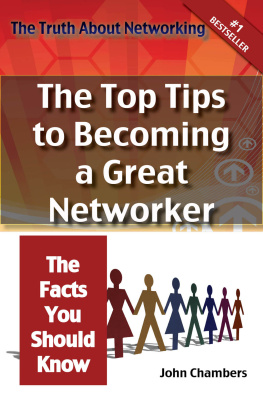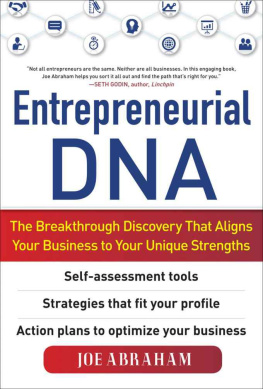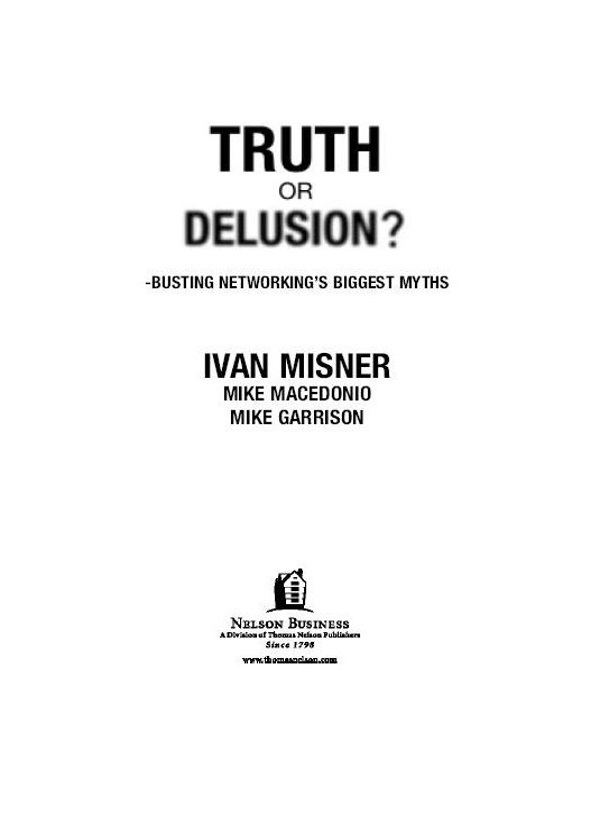If you were to ask average businesspersons to list for you the most important ways to build a business, networking would no doubt be on every single list. Yet we dont teach networking in colleges and universities around the world. We give bachelors degrees in business to students who have no idea how to build their business through networking, because its not part of the curriculum of most colleges today. Is it any wonder that there are many delusions about networking?
In the pages that follow, well lay out a series of statements that people have made about networking, then well ask you to decide whether each statement is a truth or a delusion. As you read on, youll find that some of our answers are fairly obvious to you; others will surprise you. And somewell, you may find yourself in total disagreement with us, and thats okay. Just look for the kernel of truth. With almost half a century of combined experience in business networking, the three of us have had a lot of hands-on opportunities to tackle these ideas.
Are you ready? Lets begin with the first Truth or Delusion? we ever heard...
1. TRUTH OR DELUSION?
Networking is a fad.
DELUSION. Yes, thats right. Were starting with the biggest delusion of all. It wasnt that long ago when businesspeople were saying, Oh, networking is just the newest craze; itll never last. You have to get out there and pound the pavement, put up billboards, and place ads in the mass media, the yellow pages, the insides of buses, the outsides of peoples shaved heads...
Did you say Truth? Well then, you havent been paying attention to whats been going on around you. In our lifetime, an entirely new field of study is being codified. Whether you call it networking, word of mouth, referral marketing, relationship marketing, or social capital, its all about people learning how to connect with other people in meaningful ways despite, or possibly because of, our technological revolution. Geography no longer matters; if you share an interest with someone halfway around the planet, making the connection online is as easy asno, easier thanpicking up the phone and dialing.
And yet, as new as all this technological connectivity is, it simply takes us back to an earlier era, when we lived in small communities with our extended families and knew all our neighbors. We worked for and with people we knew personally. We bought everything we needed from people who were our lifelong friends, were treated for illnesses by doctors who had cared for our parents, and trusted our finances to accountants we saw every week in church.
We dont live in a Little House on the Prairie anymore. We dont know our neighbors, and we have very few, if any, relationships with the local business community. When these communities fragmented, much of the community spirit faded as well. No longer did we feel responsibility for the welfare of our friends and neighbors, or that we all shared in the common good. The entire decade of the 1980s was called the Me Generation, when businesspeople pursued their own interests at the expense of everybody else.
Networking is no more a fad than
sales and marketing.
Referral networking arose in the vacuum created by this disappearing sense of community. It has become a way of marketing your business by building the businesses of your fellow networkers. The old ways have become new again. In networking organizations, though we may be lost in a sea of people in our big cities, we form relationships and do business with people who live near us and share a mutual interest in helping our businesses grow. At the same time, our reach is worldwide, giving us vastly more options and resources to tap for any need. Its the best of both worldsand referral marketing is the discipline that brings it all together.
The first time I was asked, Isnt this networking thing just a fad? was in 1987. The question came from a newspaper reporter with one of the largest newspapers in the United States. Confidently I told her, Networking is no more a fad than sales and marketing. Since I had just started this little networking organization called BNI (Business Network International), I was hoping that my prediction would prove to be as true as my answer sounded. More than twenty years later, I can confidently say it was. Since that reporter asked me if networking was just a fad, Ive written eight books, and my organization has opened thousands of networking groups in dozens of countries across the globe. We have groups speaking almost a dozen different languages, operating on every populated continent of the world. In addition, these groups pass millions of referrals, generating billions of dollars worth of business for one another. Recently, weve developed a spin-off company (the Referral Institute ), which trains people on something that colleges and universities donthow to network effectively. In just a few short years, this business has expanded to several countries as well.
Twenty years ago, my instincts told me that I was on to something that would stand the test of time, but I didnt have the body of work behind me that I do now. We truly live in a high-tech, high-touch society. The more technologically advanced we become, the more important it is to reach out and touch real people in our workto connect on a personal level with people. That is what networking is all about.

